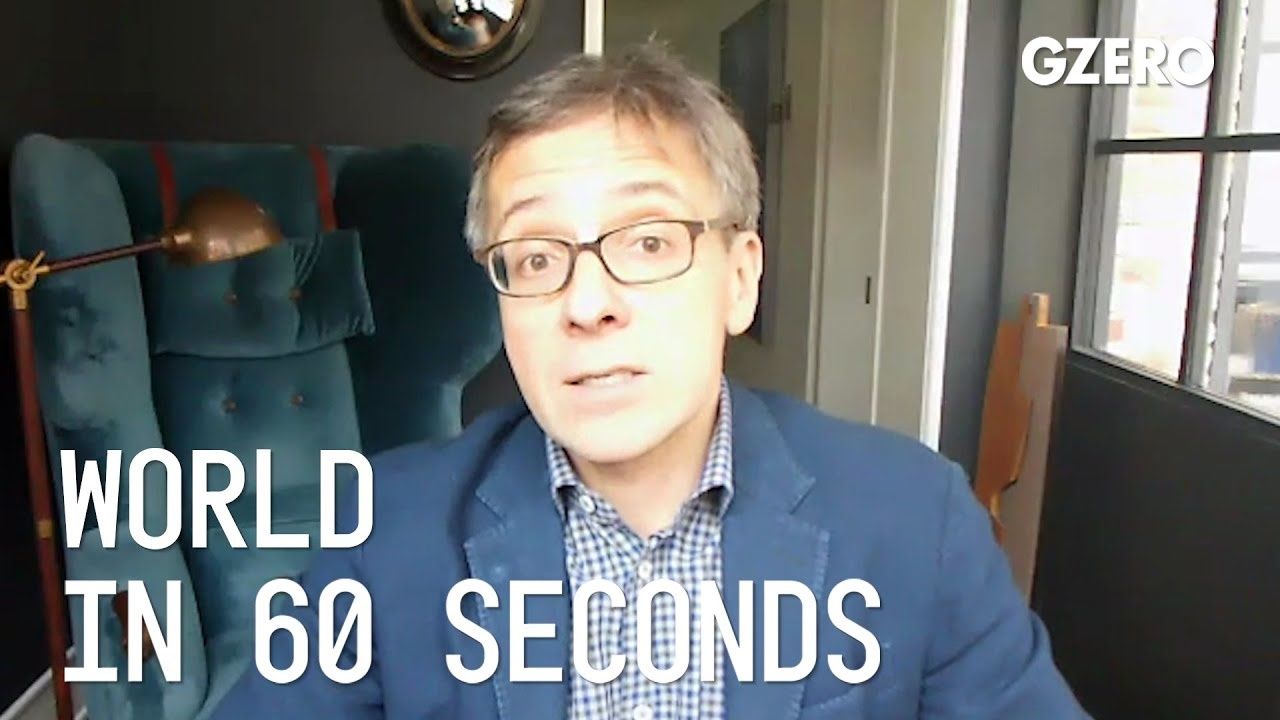In 60 Seconds
Ian Bremmer: Life Post-COVID-19 & What Happens in a 2nd Wave

Ian Bremmer: Life Post-COVID-19 & What Happens in a 2nd Wave | World In :60 | GZERO Media

Ian Bremmer provides his perspective in (slightly) more than 60 seconds: What's the coronavirus update? And when will a state of normalcy return?
Oh, that's easy. A state of normalcy will not return when we start returning to work. I certainly think that the decision by President Trump to push out to the end of April was rational. I think in certain parts of the country, it's likely to be much longer. By that, I think New York City, maybe June is when you start really seeing end of quarantines and people going back to work. But when you don't have a vaccine, the likelihood that people are going to trust going to sports and concerts and bars and restaurants or sitting in the middle seat and bringing their family to Disney is going to take a long time. I think really you need a vaccine at scale before that happens and that's well over a year out. Why? I think that all the numbers you're seeing right now about the strong rebound of the economy in the third and fourth quarter is over optimistic. And instead, you're going to need significant additional bailouts come summer, which the Americans will be able to do. Emerging markets will not. And I'm much more worried about what happens to them going forward.
Will powers enacted fighting this war on coronavirus remain when it's over?
In some cases, yes. I think in particular, the role of technology companies. We saw before this crisis hit, there was such an effort to say they need to be broken up, and this tech lash, and they're too powerful, they've got too much data. In Europe, we need our privacy. But now we're going to see that these companies, first of all, they're vastly more important today than they were a couple of weeks ago because everyone relies on them just to get business done. Rely on Amazon because you're worried about going to the supermarket. But also, we're going to need them to monitor who does and doesn't have the virus. Where they've been? Who they've been connected to? Which means all of your data is going to go to those companies and they're going to be working with the government. When that happens, you're going to see much less backlash against those companies. And by the way, the US will end up in a stronger position than the Europeans because the Americans have those companies. Those companies going to get stronger. Worth thinking about that.
If there is a second wave of infection in China, what political responses or geopolitical pressures might we expect?
I suspect there will be a second wave of infection. But what it means is that China is just not going to rebound the same way that they think they're going to rebound. Right? I mean, they are restarting the supply chain, but they closed down their movie theaters after opening them up. That's clearly because of a second wave that we just don't know about. They're not telling us about it. They're still not providing any information on asymptomatic cases to anyone else around the world, which is incredibly irresponsible. They have the largest number of cases. They're lying about it. And they have the longest case history. We need that information. They're not giving it to us. So, I still think that the big issue here and the big geopolitical implications, is that US-China relations are going to become more problematic going forward, not that China's going to do anything differently than they have been in terms of how they're handling it domestically or with the rest of us.
Who decides how much control a country should have over its technology? Speaking at the 2026 World Economic Forum in Davos, former UK Prime Minister Rishi Sunak discussed the balance between national sovereignty and global interdependence.
Think you know what's going on around the world? Here's your chance to prove it.
AI is advancing quickly, but access and control remain deeply uneven. As artificial intelligence becomes foundational to economies and governments, the question is no longer just who has the best technology, but who controls the systems that power it. In this GZERO Media Global Stage interview from the 2026 World Economic Forum in Davos, Tony Maciulis speaks with Talal Al Kaissi, Group Chief Global Affairs Officer at G42, about why AI has intensified debates around digital sovereignty, and what it will take to close the global AI divide.